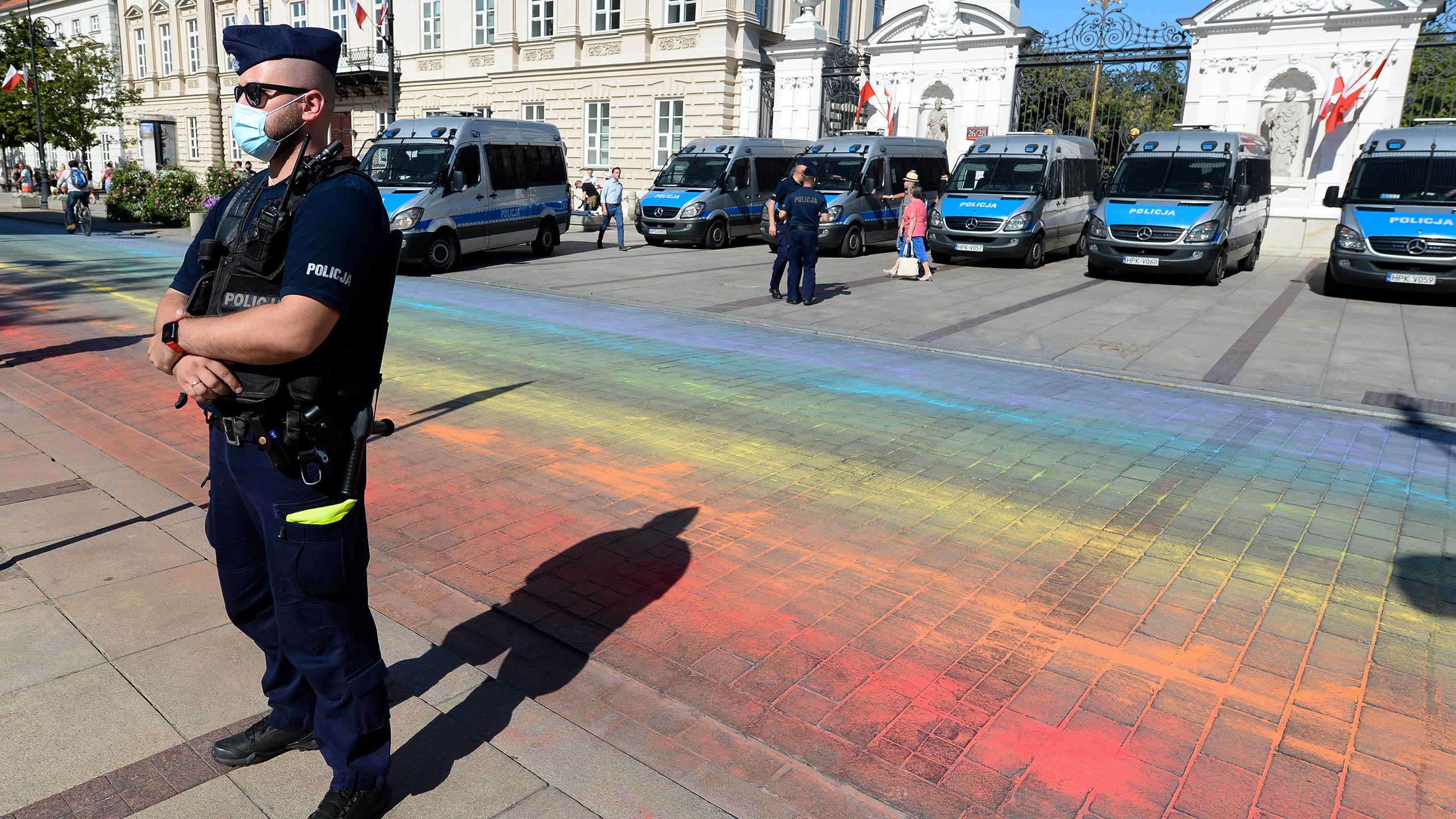A law allowing schools to ban LGBTQ+ education and extracurricular activities was passed in Poland’s lower house of parliament last Thursday. Following a 227-214 vote, it now moves on to the Senate, where a final decision is likely to be made.
If passed, the legislation would give school administrators and superintendents the power to ban LGBTQ+-affirming lessons, clubs and reading materials, according to the queer news outlet Washington Blade. Its censorship implications mirror Russia’s “gay propaganda” laws, which prohibit depictions of homosexuality in media aimed at children under the rationale that they contradict so-called “family values.” Hungary passed similar legislation banning the promotion of LGBTQ+ material to minors in schools and the media last year.
Poland’s measure—dubbed “Czarnek’s Law” after the country’s education minister, Przemysław Czarnek—was drafted by the Ministry of Education and Science as an amendment to the proposed Educational Law. That bill seeks to strengthen the role of school superintendents and change regulations concerning the workings of non-governmental organizations in schools, according to the Polish media outlet RMF24.
Following the passage of Czarnek’s Law, heads of schools or educational institutions would be required to provide superintendents with an outline of their courses and class materials for review. Should they fail to comply with any recommendations issued by their superintendent, they could face the consequence of being dismissed without notice, as RMF24 reports.
With superintendents being government-appointed and the national conservative Law and Justice (PiS) party currently in power, the bill has been criticized by non-profit advocacy groups, teachers’ unions and local authorities. Although the legislation is widely seen as an attempt to further right-wing influence over schools, Czarnek has defended it as a necessary step to “protect children from moral corruption.” In the past, the education minister has compared so-called LGBTQ+ “ideology” to Nazism.
Observers predict that the law will be rejected on the Senate floor, with political opposition occupying 52 out of 100 seats in the chambers.
Agnieszka Dziemianowicz-Bąk, a progressive leftist politician and member of the lower house of parliament, condemned the ruling PiS party on Jan. 13 after the law was passed to the Senate. Her statement referenced Barbara Nowak, Małopolska’s education superintendent, who faced controversy recently for making comments critical of vaccination.
“The voice of Curator Nowak, as if it were not stupid and dangerous to health and life, is more important for PiS deputies than the voices of students, parents and teachers,” she wrote in a tweet.
Czarnek’s Law is just the latest of many anti-LGBTQ+ developments in Poland, which ranked 43rd among the 49 countries featured in Rainbow Europe’s 2021 review of LGBTQ+ human rights across the continent.
Since 2019, the country has seen a continued spread of “LGBT-free zones,” with more than 100 municipalities and five provinces declaring themselves unwelcoming of alleged LGBTQ+ “ideology.” These largely symbolic ordinances are usually passed with the purpose of banning LGBTQ+ events such as Pride marches and so-called “homosexual propaganda,” according to a 2020 report from the Council of Europe.
But Poland’s anti-LGBTQ+ crackdown has led to backlash from European leaders. Ambassadors from 50 countries signed an open letter in September 2020 calling on Poland to end discriminatory practices against the LGBTQ+ community.
Last September, the European Commission, the executive branch of the European Union (EU), threatened to withhold critical funding from Polish regions if they did not abandon their “free zone” policies. With Poland refusing to comply, the EU has since blocked funding to the country and a 42 billion euro payment from the COVID-19-recovery fund, prompting four of the country’s five provinces to revoke their discriminatory measures.
Despite the EU blowback, Polish President Andrzej Duda ran much of his 2020 re-election campaign on the promise of more anti-LGBTQ+ legislation and formally proposed a constitutional amendment that would prevent any person in a same-sex relationship from adopting in July of that year. Although adoption was already illegal for LGBTQ+ couples, 2020 also saw the passage of a new law seeking to further vet queer people from adopting by restricting single people who live with someone of the same sex.
As a supporter of Czarnek’s Law himself, Duda could sign off on the measure even if the Senate rejects it. With pressure mounting locally and abroad, it remains to be seen whether or not Poland will end up adopting the legislation.


 Why you can trust Xtra
Why you can trust Xtra


